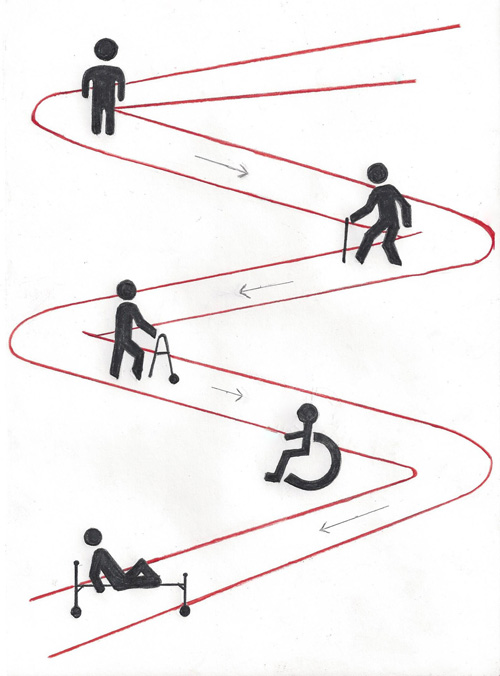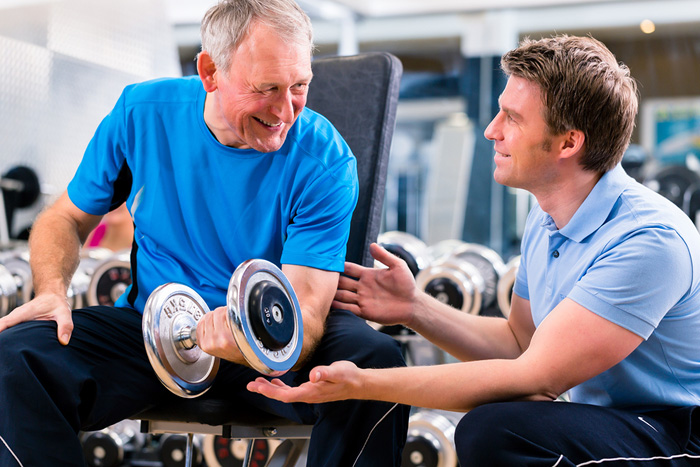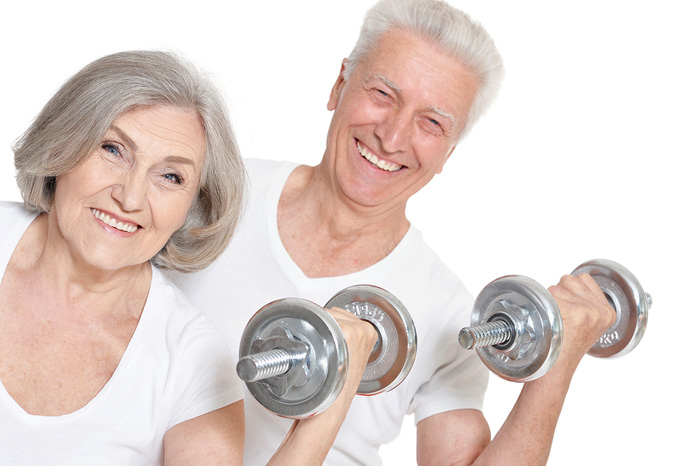Benefits of Strength Training As We Age
 Reap the Benefits!
Reap the Benefits!
Benefits of Strength Training
Studies consistently prove the following benefits of strength training:
- Increases bone density at any age;
- Strengthens joints, reduces pain, and eliminates certain types of arthritis;
- Stops tendons from weakening;
- Decreases falls as we age;
- Affords greater mobility and independence for the elderly;
- Significantly increases neurotransmitters in the brain that support balance, coordination, and reflex;
- Boosts the metabolism so fat is burned faster;
- Leads to better posture and movement;
- Significantly reduces and stops muscle loss;
- Reduces blood sugar levels so insulin can do its job;
- Reverses the decline in efficiency, which is the need to exert more energy, that occurs as athletes age;
- Greatly influences health of the entire body, including organs and the brain;
- Improves reaction time by strengthening nerve connections; and
Effects of Strength Training on Your Body
-- how it works
When we do strength-building exercise, we cause trauma to the muscle tissue. The irritation sends signals to repair the tissue. This process enables the muscles to adapt to the demands being placed on them by growing and getting stronger.
If you continue to exercise, thousands of proteins and chemicals are carried through the blood, ridding your body of old or damaged cells and nurturing the growth of new, healthy cells. It takes about 4 months for our muscle cells to turn over.
Muscles keep the circulatory delivery process moving. Our large leg muscles greatly assist in getting much-needed circulation into the brain, resulting in a healthier brain.
Multi-functional Full Body Home Gym Equipment on Amazon
Strength Training for Older Adults
Studies of people in their nineties have shown the benefits of strength training by measurable gains in strength through resistance training.
If you have been away from strength training for a long time, or just a beginner, you can begin to reap the benefits at any age. The sooner you start, the better your chances of building and maintaining benefits that will last a lifetime.
The benefits of strength training are there for your choosing; but, you must be committed to the process towards better health. You must change your lifestyle.
Once you stop weight training, or any form of exercise, your body will adapt to that lack of demand.

Muscle Loss With Aging
According to Dr. Beatrice Edwards, director of the Bone Health and Osteoporosis Center at Northwestern University Feinberg School of Medicine, we lose about 45% to 55% of our muscle mass by the time we're 70. The result of that muscle loss makes us weak and tired as we age. Resistance training, exercise, and sufficient protein intake help to stave off this progression.
Far too often we witness someone aging, sometimes many years before their time. They become less active for any number of reasons or excuses. That lack of activity and strength training produces a downward-spiral effect called atrophy. Their bodies begin to emaciate and weaken.
This downward path results in increased fragility and dependency. Yet, many people accept this decline as a normal part of aging.
At the bottom of the spiral is the life of an invalid. One fall, and they most likely die. Sadly enough, it is the lifestyle choice of many, even though it is preventable.
Do not avoid stairs. I encourage you to use them to build and maintain strength -- the loss of which puts you at risk of falls.
You can enjoy the benefits of strength training, and counteract the effects of aging. It's a choice!
More Topics That May Interest You
Some of the advertisers on my website are affiliate partners, which means that I may receive a small commission from any sale, at no extra cost to you.
For example, the Amazon affiliate advertising program is designed to provide a means for sites to earn fees by advertising and linking to amazon.com.
Your tips and purchases help to support this free-information website.
Thank you.
The content of this website is for informational purposes only and not intended to be taken as a replacement for professional medical advice, care, diagnosis or treatment by a doctor, dietitian, physical therapist, nutritionist or fitness instructor.
DO NOT BEGIN ANY EXERCISE PROGRAM WITHOUT CHECKING WITH YOUR DOCTOR FOR UNDERLYING CONDITIONS THAT MAY PREVENT YOU FROM DOING SO.










